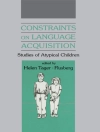This book is about the policy-practice praxis in English language education, and draws on research from a diverse range of under-explored international settings to showcase the importance of contextual realities on how policy and practice interact. The case studies covered in the volume come from five continents (Africa, Europe, Asia, and South and North America) and cover 11 countries in total. The authors cover a wide range of themes and identify a number of issues at the interface between policy and practice. In some cases they also highlight local initiatives for navigating these issues, providing contextually-grounded guidance and experience which will be of use to teachers and teacher trainers in other settings. This book will be of interest to policy makers, EMI researchers, ELT practitioners, teacher trainers and trainees, and the broader Applied Linguistics research community.
Table of Content
1. English Language Policies and Practice into the World: From Problems Towards Solutions (Eric Enogene Ekembe, Justina Njika, and Alan Mackenzie).- Part I: Change Process in ELT Policy.- 2. Teaching at—not to—the middle in Japan: Examining how ELT policies aimed at extremes influence mid-tier institutions (Giancarla Unser-Schutz, Beni Kudo, and Samuel Rose).- 3. The implementation of the 4+4+4 educational policy in Turkey: Reflections from English classrooms (Tuğba Birdal and Seniye Vural).- 4. Teachers’ appreciation of ELT policies and practices in Egypt (Islam M. Farag and Mohamed Yacoub).- 5. ELT policies in multilingual contexts: An analysis of rural-urban experience in Ghana (Raymond Karikari Owusu and Andrea Sterzuk).- Part II: Practice Steering the Wheel.- 6. Integrating communicative language teaching activities in overcrowded classrooms: Policy and practice issues in South Sudan secondary schools (Alex D. D. Morjakole).- 7. ELT policies and practices in superdiverse Central Ohio: From “flexible” to “English-centric” (Brian Seilstad).- 8. English Language Teaching in Colombia: From policy to reality (Daniel Ramírez Lamus).- 9. Broken promises? The Florida Consent Decree, Multilingual Learners i in mainstream classes, and assimilationist practice (Eric Dwyer and Carolyn O’Gorman-Fazzolari).- Part III: Teachers’ Position in Policy Innovation.- 10. Policy on Global Issues in Sub-Saharan Africa: A possible role for ELT from examples in Guinea Bissau, Senegal and DRC (Linda Ruas and Ali Djau).- 11. English language proficiency for all university graduates stipulated by law—a realistic or idealistic goal? An appraisal of a tertiary ELT policy from Montenegro (Vesna Bratić and Milica Vuković-Stamatović).- 12. Assessing teachers’ perceptions of relevant ELT Policies in Cameroon (Eric Enogene Ekembe).- Part IV: Interface.- 13. So…What’s the Interface? The specter of smush and poof (Eric Dwyer).
About the author
Eric Enongene Ekembe is senior lecturer in the Department of English at The Higher Teacher Training College (ENS) Yaounde, Cameroon. He holds a Ph D in Applied Linguistics and TESOL and is interested in postcolonial discourse in ELT and has published research articles in peered-reviewed journals. He is co-editor of Interdisciplinarity in the 21st Century Global Dispensation: Research in Language, Literature, & Education in Africa. Eric is coordinator of CAMELTA Research Group and outreach coordinator of IATEFL Re SIG.
Lauren Harvey is the Assistant Director of Second Language Writing at the University of Arizona in Tucson, USA. She develops, trains new teachers for, and teaches foundations writing courses designed for students who do not speak English as their primary language. Her research focuses on the curriculum knowledge and enactment of second language writing instructors. Other interests include the teaching of English as a global language and critical memetic literacy.
Eric Dwyer is a program leader and associate professor in Foreign Language Education at Florida International University in Miami, USA where he in an instructor of foreign language teaching methods and a researcher in multilingual education.












